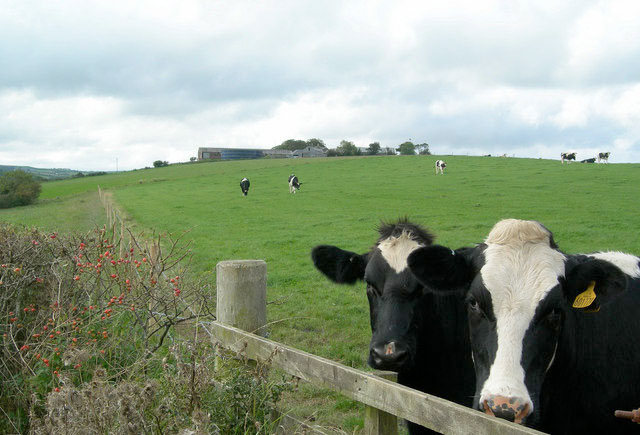
Recent price cuts by milk buyers have caused a lack of trust which must be addressed if the UK is to be competitive in the growing global dairy market, according to the National Farmers' Union.
Muller Wiseman and First Milk announced price cuts for August in the last week due to falling commodity markets across the globe. We are not singling these companies out as most, if not all, milk buyers have lowered prices this summer, but highlighting a need for better pricing policies.
Martin Armstrong, Head of Group Milk Supply for Müller UK & Ireland Group said: “Market conditions remain very challenging with returns from cream and butter significantly lower since the end of 2013.
“Regardless of this loss of value from dairy commodities, which is already reflected by competitors in their milk prices, we remain determined to offer a leading milk price to dairy farmers who are not part of supermarket aligned groups.
Since the turn of the year, global prices have indeed fallen due to slackening global demand, particularly in the Chinese market, whilst global supply remains strong.
The Union continued to argue for objective and market-related pricing mechanisms to create a genuinely collaborative and competitive dairy sector.
"What [the union] does challenge is the argument that market indicators appear to be quickly used as reason for price cuts, whereas there often seems to be any number of reasons why strong markets are not reflected more accurately," the NFU said.
NFU Scotland’s Dairy Policy Manager George Jamieson commented: “If milk buyers are genuinely paying as much as they can, which is the case with co-ops, then the performance of the business must be challenged. Are private buyers genuinely sharing risk and reward, or setting prices based on competitor’s prices?
“This should not be the case anymore. Arla for example base its price on an objective mechanism based on performance of the business, which is now global, and only indirectly influenced by the UK market, therefore it should not be green light for UK processors to drop prices per say.
“Over 2013, commodity values were historically high. UK farm gate prices rose too slowly and not to as high as should have. Last summer when market indicators very clearly and consistently rising up to 39ppl indicating that 37 ppl should have been achievable by at least some buyers, but we did not get close, with 34ppl the best.
“So when farmers are told that 30ppl is in line with the ‘market’ then why should this not be the case when wholesale prices are at their peak?
“The argument that these levels of prices are not achievable should look at the prices received by our European competitors, who did reach higher prices and at faster rate.
“Farmers should judge their milk buyer based on performance over the longer term. Dairy companies, whether a co-operative or PLC, must be judged on their performance, not on their competitor’s performance.
“We are now in a global market, but the UK farm gate price still largely remains below European, even New Zealand prices.
“In an increasingly competitive dairy world, UK dairy farmers, who are genuinely competitive, must ask their processors if they are.
“Elected farmer representatives, whether co-op or private must ask their milk buyers exactly why prices have dropped. Individual milk processors who value their supplying farmers must explain exactly why they are dropping prices, and farmer reps must be professional and able enough to challenge this.
“Tit for tat prices moves are not acceptable as this is pricing based on competitor’s performance and not on their, which is clearly an issue farmer reps should address.”
First Milk chairman Sir Jim Paice MP said: “Although there are signs that the dramatic falls in price for most commodities are behind us that does not mean that the consequences are not still being felt. These prices fell by almost 30% which is considerably more than the milk price has fallen. In addition the extra supply during the flush, which was paid for at the higher price, has to be sold after prices have fallen. All this has resulted in the actual milk prices that ourselves and some other players have now announced.
“While we cannot control global and European market prices, the Board of First Milk is working hard to improve the situation and has reduced overheads considerably and will continue to do so. We are also constantly analysing prices from various dairy markets to ensure we move milk around where possible to maximize returns. We are as anxious as all members to see the end of price cuts.”
